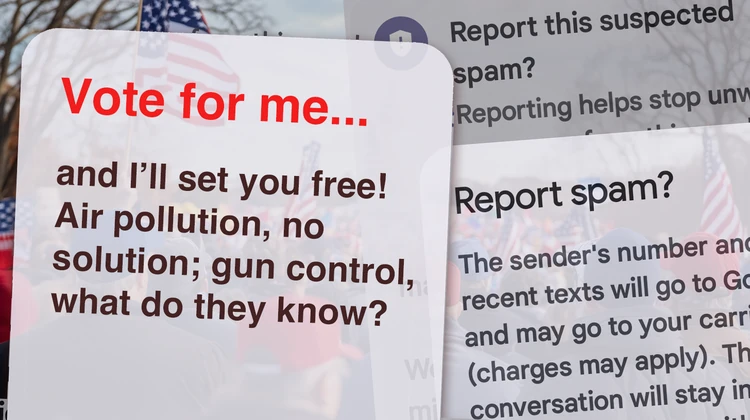This falls political campaigns promise a bombardment of texts

The Federal Communications Commission (FCC) has proposed new consumer protections against AI-generated robocalls and robotexts.
The proposal would require callers to disclose their use of AI-generated calls and text messages, supporting technologies to alert and protect consumers from unwanted and illegal AI robocalls.
What the proposal wants to define is what exactly is an AI-generated call and whoever is sending out those calls and texts is required to get prior consent from the person theyre sending it to.
Furthermore, callers would have to inform consumers when they receive an AI-generated call on each call. Consumers will be able to identify and avoid those calls or texts that are prone to fraud and other scams this way.
Campaign 2024 about to unleash robohell
As predicted, robotexts are already starting to roll in from politicians, parties, and action groups trying to persuade Americans that they are right and everyone else is wrong.
Ed Skoudis, faculty at IANS Research, says that AI will be in the thick of this, too.
With the backdrop of an election year, nefarious individuals will create fake content, including deep fakes and an overwhelming volume of misleading textual and photographic information. This onslaught aims to confuse and manipulate voters. The repercussions may include rumors, innuendo, and potentially spear-phishing and other targeted attacks against political parties and candidates, Skoudis told ConsumerAffairs.
But, can you cut em off before they get to you? For those of you who put your phone number on the federal Do Not Call registry, sorry, but that registry is essentially useless in regards to campaign-related calls and texts and offers zero protection.
You can also text stop when one comes in, but as undaunted as politicians can be, they might not stop and just keep bulldozing your life with more.
Blocking the number might be the better way to go. Or you can go to the "messages" section in your phones settings and filter out messages from anyone not in your contact list.
You ask if the FCCs rule about prior consent doesnt come into play here? ROTFLOL. As one cybersecurity expert explained to CBS-TV/Boston, somewhere along the line, you DID give them consent.
Photo Credit: Consumer Affairs News Department Images
Posted: 2024-08-09 11:01:46




















